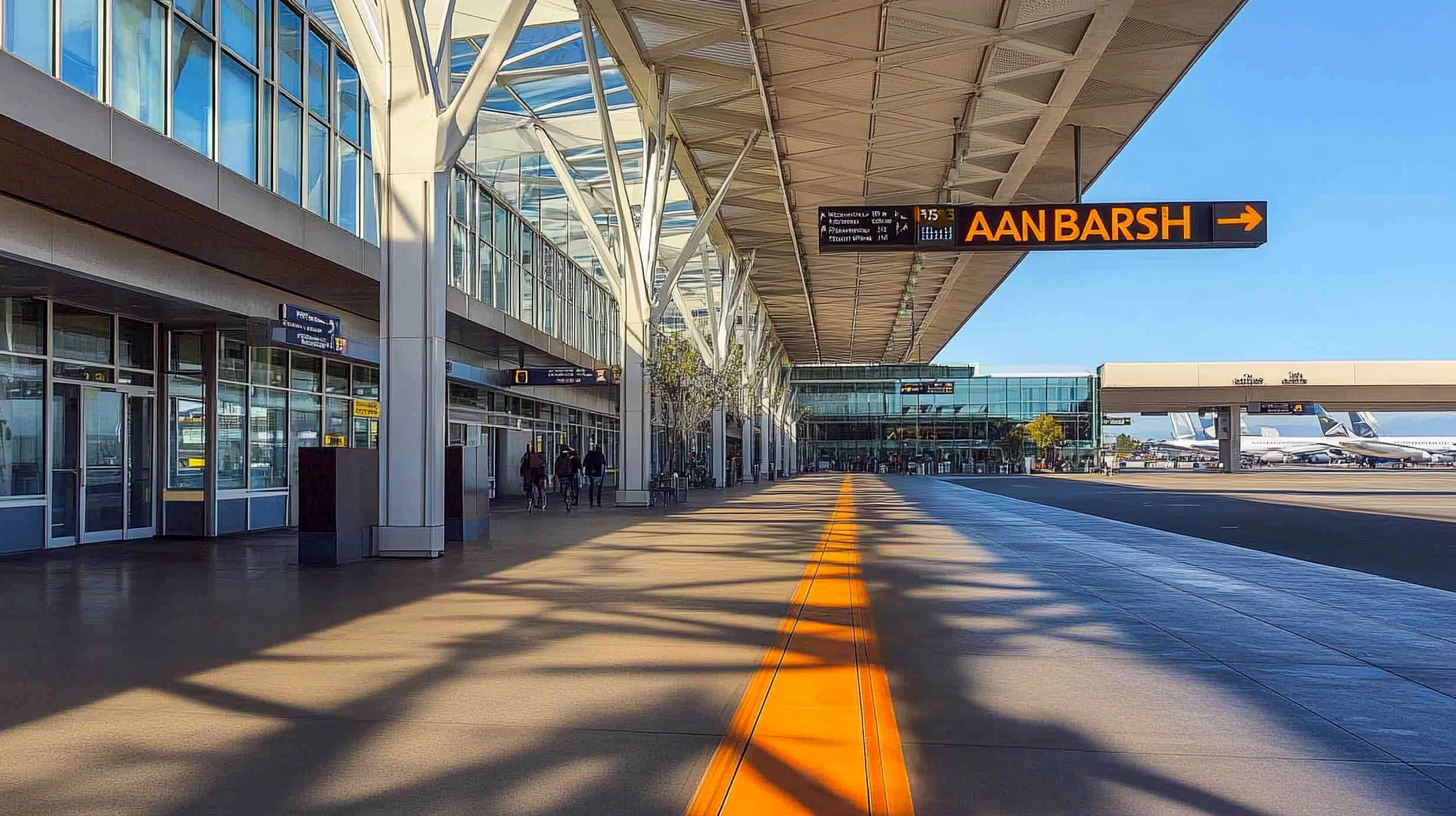Oakland Airport’s Controversial Name Change: A Deep Dive into the Bay Area Branding Battle

In a bold move to boost traveler awareness and stimulate economic growth, the Oakland International Airport, a key transportation hub in Northern California, underwent a significant rebranding effort. Renamed as the San Francisco Bay Oakland International Airport, this strategic decision was intended to better reflect the airport’s geographic location and attract a wider range of international travelers. However, this move was met with both enthusiastic support and staunch opposition, culminating in legal challenges that have stirred not only the aviation industry but also ignited passionate debates among the diverse Bay Area communities.
The Rebranding Initiative: A Strategy for Growth

The Oakland Port Commission approved the airport’s renaming after extensive deliberation, with the intention of attracting more travelers by highlighting its close proximity to San Francisco and other notable regional attractions such as the Napa Valley wine country and Silicon Valley’s tech hubs. By incorporating “San Francisco Bay” into its name, Oakland aimed to increase geographic awareness among both international and domestic passengers who might be unfamiliar with the Bay Area’s complex layout. The rebranding was seen as a strategic move to position Oakland as a convenient alternative for travelers looking to explore the wider San Francisco Bay region, part of efforts to enhance Oakland’s global connectivity.
Despite the significant change in name, the airport retained its well-established IATA code, OAK, ensuring seamless continuity in airline operations, ticketing systems, and logistical processes. Supporters of the rebranding believe that the new name could significantly enhance tourism and bring substantial economic benefits to Oakland by leveraging the global recognition and appeal of San Francisco. They argue that by aligning itself more closely with the internationally renowned city, Oakland can attract a larger share of visitors who might otherwise overlook it in favor of its more famous neighbor.
Legal Turbulence: San Francisco’s Trademark Lawsuit

However, this strategic move did not sit well with neighboring San Francisco officials, who viewed the rebranding as an encroachment on their city’s established identity. Claiming that the new name infringes on San Francisco International Airport’s (SFO) trademark, the city filed a lawsuit against the Port of Oakland. San Francisco argued that the inclusion of “San Francisco” in Oakland’s airport name could cause confusion among travelers, potentially misleading passengers and impacting SFO’s brand and goodwill. They contended that the rebranding might dilute the distinctiveness of SFO’s name and create unfair competition between the airports, highlighting concerns over potential traveler confusion due to airport name similarities.
In response to the lawsuit, a U.S. Magistrate Judge issued a temporary injunction blocking Oakland from using the new name during the ongoing legal proceedings. The judge agreed with San Francisco’s argument that the rebranding could mislead travelers into thinking there is an affiliation or direct connection between the two airports, thereby justifying the injunction to prevent possible trademark infringement. This legal intervention underscored the gravity of the dispute and highlighted the complexities involved in airport branding within shared geographic regions, as detailed in legal analysis of the trademark dispute between Oakland and San Francisco airports.
Oakland’s Standpoint: Defending the Rebrand

Oakland airport officials have staunchly defended the name change, asserting that it serves to clarify the airport’s location for travelers who may not be familiar with the intricate geography of the Bay Area. They emphasize that the rebranding is a strategic necessity for passenger growth, particularly in the wake of the COVID-19 pandemic’s profound impact on the aviation industry. According to Oakland officials, the new name helps position the airport as an accessible gateway to all the attractions of the San Francisco Bay Area, thereby enhancing its appeal to potential travelers. They argue that the rebranding aligns with global trends in airport marketing and branding and is essential for remaining competitive in a rapidly changing travel landscape.
The Port of Oakland has expressed deep disappointment in the court’s ruling, stating that the injunction hampers their efforts to promote economic vitality in the region. They are currently considering an appeal, believing that the legal grounds for the lawsuit are unfounded. Their legal team is also planning to counter San Francisco’s claims with a Declaratory Relief Action, asserting the legitimacy of the new name and seeking a resolution that acknowledges Oakland’s right to rebrand its assets for economic development. Oakland officials emphasize that the rebranding is not intended to infringe upon San Francisco’s trademarks but rather to accurately represent the airport’s service area, as outlined in Oakland’s official response to the trademark lawsuit.
Community Reaction: Support and Opposition

The name change has sparked a wide spectrum of reactions among local communities, business leaders, and stakeholders. Supporters, including several local businesses, tourism boards, and economic development organizations, see it as a necessary step to enhance the airport’s competitiveness on the global stage. They believe that by aligning the airport’s identity with the internationally recognized San Francisco Bay Area, Oakland can capitalize on the economic opportunities presented by increased tourism and visibility. Proponents argue that the rebranding could lead to more flights, more visitors, and ultimately, greater economic prosperity for the city, a viewpoint supported by studies on the economic impact of airport branding.
Conversely, critics argue that the rebranding could dilute Oakland’s unique cultural and historical identity, overshadowing it in favor of its more globally recognized neighbor. They fear that by adopting San Francisco’s name, Oakland may lose its distinctiveness and fail to promote its own attractions and heritage. Environmental groups have also voiced concerns over potential increases in air traffic leading to higher pollution levels, noise, and environmental degradation. They argue that the push for growth should not come at the expense of environmental sustainability and community well-being. Additionally, some residents feel that the rebranding is an unnecessary capitulation to San Francisco’s prominence, rather than a celebration of Oakland’s own strengths. This opposition is highlighted in community perspectives on Oakland Airport’s rebranding, where residents express their reservations about the name change.
Environmental and Expansion Concerns

Beyond the legal battles and branding issues, the airport’s plans for physical expansion have further fueled the controversy. Airport officials cite projections of future demand as justification for growth, emphasizing the need to accommodate rising passenger numbers and to improve facilities. However, community members and environmental advocates are increasingly worried about the potential environmental impact of such expansion, including increased air pollution, noise pollution, and adverse effects on local ecosystems. They argue that expanding the airport could exacerbate climate change effects and negatively impact the quality of life for nearby residents. Environmental impact assessments, like those in reports on the environmental effects of airport expansions, are being closely examined by concerned stakeholders.
The debate over the airport’s expansion ties directly back into the name change controversy, as both are perceived as interconnected strategies aimed at attracting more travelers and increasing revenue. Critics fear that these initiatives prioritize economic gains over the community’s well-being and environmental health. They express concerns that relentless growth could lead to unchecked development, strain local infrastructure, and degrade natural resources. Supporters, however, argue that responsible growth is essential for the city’s economic survival and can be managed sustainably. This complex issue is explored further in the balance between economic development and environmental sustainability in airport projects.
Current Status and Future Outlook

As of the latest developments, the rebranded name had appeared on Oakland’s digital platforms and marketing materials, seemingly in defiance of the legal injunction. This move has drawn additional criticism and has been viewed by some as a challenge to the court’s authority. The final decision on the name change is pending further community feedback and ongoing legal proceedings, with the Port of Oakland set to revisit the issue in an upcoming meeting slated for May. The outcome of these discussions and legal determinations will significantly influence the future branding and operations of the airport. Updates on these developments can be found in latest news on Oakland Airport’s rebranding efforts.
Meanwhile, the ongoing lawsuit continues to unfold with significant implications. San Francisco is seeking not only to halt the use of the new name but also financial damages and coverage of legal fees, arguing that the rebranding constitutes willful infringement. Oakland maintains its stance on strengthening its airport’s position, emphasizing the need for regional collaboration rather than conflict. Officials from Oakland have called for constructive dialogue to address the concerns raised, suggesting that the two cities could work together to promote the Bay Area as a whole. Discussions on potential resolutions are being monitored closely, as described in possible outcomes of the Oakland vs. San Francisco airport dispute.
The outcome of this legal dispute will have far-reaching implications beyond just the two airports involved. It will influence the branding strategies of regional airports nationwide and could set important legal precedents for how municipalities leverage geographic identifiers in their marketing efforts. A decision favoring San Francisco may discourage other airports from adopting similar branding strategies, whereas a ruling in favor of Oakland could encourage more aggressive rebranding initiatives. Industry experts are watching the case closely to understand its potential impact on trademark law and regional marketing practices. This case could significantly affect future legal considerations for airport branding and naming rights.
Final Thoughts

The controversy surrounding the Oakland airport’s name change underscores the complex interplay between regional identity, economic aspirations, legal boundaries, and community values. As both cities navigate this turbulent chapter, the ultimate resolution will shape not only the future of the airports involved but also provide critical insights into effective branding practices within the highly competitive aviation industry. It also raises questions about how cities can collaborate rather than compete in promoting regional growth.
Follow us back to Seat 5A for more insights and updates on this evolving story. Passengers, stakeholders, and observers keenly await the final verdict, understanding that it will undoubtedly impact travel dynamics, economic development, and regional branding strategies in the Bay Area. Until then, the skies over San Francisco and Oakland remain a vivid illustration of how names and identities carry significant weight in shaping both perception and reality. The situation serves as a reminder that in an interconnected world, the way places present themselves can have profound implications on their futures.






